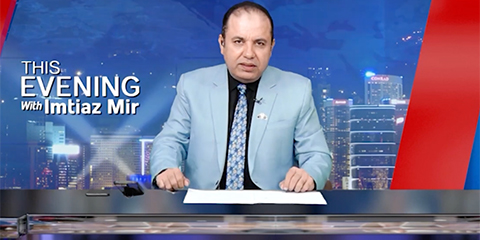
PFUJ calls for end to Impunity for Crimes Against Journalists
November 02, 2025: PFUJ urges Pakistan’s federal and provincial governments to end Impunity for Crimes Against Journalists and ensure their safety and press freedom.
JournalismPakistan.com | Published 9 years ago
Join our WhatsApp channel
The International Federation of Journalists (IFJ) and its affiliate the Pakistan Federal Union of Journalists (PFUJ) have condemned the passing of the Prevention of Electronic Crimes Bill (PECB) 2016 on Thursday, August 11. The IFJ urged the Pakistan Parliament to reconsider the Bill to make it acceptable to all ensuring the international standards.
The National Assembly, the lower house of the Parliament, officially approved the PCEB on Thursday. The Bill was originally passed by the Assembly on April 13, however when it was sent to the Senate, Parliament’s Upper House, it was knocked back. More than 50 amendments were made to the PCEB and it was unanimously adopted by the Senate on July 30. Pakistan President Mamnoon Hussain will now sign the PCEB in law.
The PCEB has received widespread criticism from opposition parties, stakeholders and media groups for the provisions which many believe will curb freedom of expression in Pakistan. Particular criticisms focused on the vague wording in the bill, which is open for misinterpretation, restrictions on freedom of expression online and access to information. Criticisms also focused on the sweeping powers granted to the state authority to conduct surveillance on citizens. Many argued that the provisions of the law could specifically be misused to target journalists’ sources and whistleblowers.
The PFUJ said: “The Bill is against the the freedom of speech and expression of the media and against the privacy rights of the common citizen. Especially, the sharing of personal data with the agencies would create more safety problems for the media workers. It also violates the rights given by the UN charter. The PFUJ will continue to oppose it.”
In a statement Bytes for All, Pakistan, said: “The enactment of this law criminalizes a wide range of speech online, including legitimate political and religious expression, with harsh prison sentences and fines... Already vulnerable and marginalized sections of the society – religious, ethnic and sexual minorities, political dissidents and journalists – who have had to resort to the Internet as the only space where they can share ideas freely, will now be at even further risk whenever they express themselves online.”
The IFJ said: “The approval of the Prevention of Electronic Crimes Bill despite widespread criticism of it being restrictive to the freedom of expression online is a setback for Pakistan’s democracy. The law leave spaces for misinterpretations that could be misused to target opposition voices or journalists is the major concern along with state authority’s power to surveillance on citizen. The law could be used to silence opposition voices thus weakening the democracy, public sphere and the media.” - IFJ media release

November 02, 2025: PFUJ urges Pakistan’s federal and provincial governments to end Impunity for Crimes Against Journalists and ensure their safety and press freedom.

November 02, 2025: Impunity for crimes against journalists deepens worldwide as Pakistan reports a 60 percent surge in attacks and weak enforcement of safety laws.

November 01, 2025: Pakistan Press Foundation reports 137 attacks on journalists in 2025, highlighting rising threats, legal harassment, and censorship on the International Day to End Impunity.

November 01, 2025: A viral Samaa TV clip featuring MNA Sher Afzal Marwat’s crude remarks and Talat Hussain’s laughter raises questions about the declining ethics of Pakistani television.

October 31, 2025: Police foiled a plot to kill DawnNewsTV journalist Tahir Naseer in Rawalpindi after arresting suspects hired for Rs200,000. Naseer says threats followed his reporting.

October 31, 2025: CPJ calls on Pakistan to bring Imtiaz Mir’s killers to justice after the journalist was allegedly murdered by a banned militant group in Karachi.

October 30, 2025: The PFUJ has condemned a fabricated drug case against journalist Matiullah Jan, calling it an attempt to silence him and urging authorities to quash the charges immediately.

October 30, 2025: NewsOne TV remains on air but faces mass layoffs and delayed salaries, exposing Pakistan’s worsening media crisis and financial instability.

November 02, 2025 Independent outlet All About Macau to halt print and online operations amid rising pressure, financial strain, and legal threats, sparking press freedom concerns in the city.

November 01, 2025 Belarus court jails journalist Siarhei Chabotska for extremism and defaming the president, highlighting Minsk’s ongoing crackdown on press freedom.

November 01, 2025 Mexican journalist Miguel Angel Beltran was found murdered in Durango. CPJ urges authorities to ensure justice amid rising violence against journalists in Mexico.

November 01, 2025 UNESCO survey finds one-third of media lawyers cannot effectively defend journalists due to threats, limited resources, and lack of specialization.

October 31, 2025 Radio Free Asia, a US government-funded broadcaster covering tightly controlled Asian media environments, has suspended all news operations after federal funding dried up.